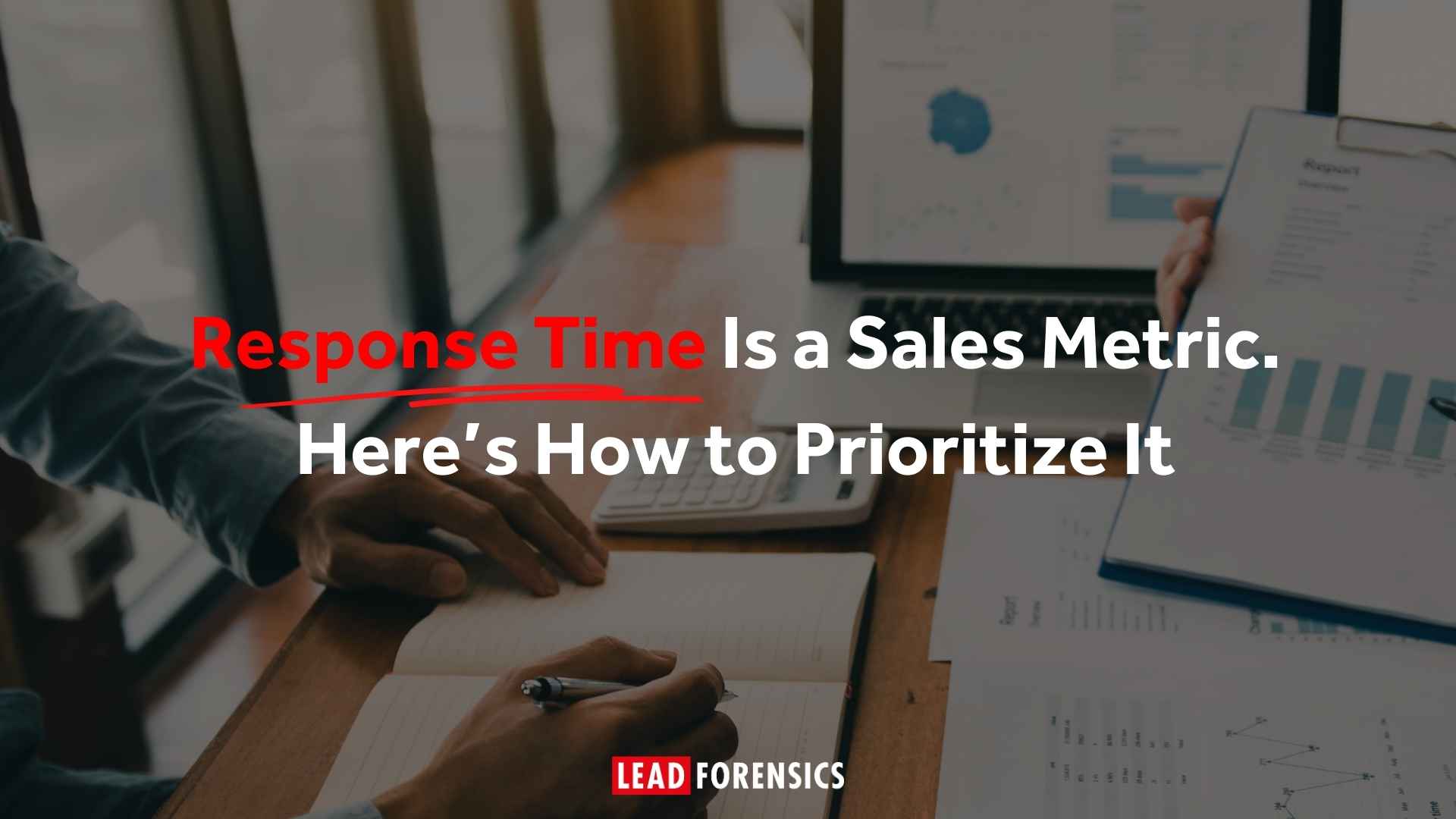What Is Revenue Generation?
Revenue generation is the process of creating income for a business through the sale of products or services. In the B2B (business-to-business) context, it involves transactions between businesses, where one company offers goods or services to another. Unlike B2C (business-to-consumer) sales, B2B transactions typically involve longer sales cycles, larger deal sizes, and more complex decision-making processes. At its core, revenue generation is about more than just closing deals; it’s about sustaining long-term relationships and delivering consistent value.
Why Is It Important to Generate Revenue?
Generating revenue is the lifeblood of any business. Without it, a company cannot sustain operations, invest in growth, or achieve profitability. Revenue generation not only covers the costs of running a business but also funds innovation, expansion, and the development of new products or services. In B2B, consistent revenue growth is particularly crucial as it reflects the company’s ability to maintain and expand its client base, adapt to market changes, and ultimately secure its position in the marketplace. Simply put, without revenue, there’s no business.
What Are the Key Challenges in Generating Revenue in B2B Markets?
Generating revenue in B2B markets comes with unique challenges:
- Longer Sales Cycles: The decision-making process in B2B transactions often involves multiple stakeholders and can take months or even years.
- Complex Buyer Journeys: B2B buyers require detailed information and often seek custom solutions, making the sales process more intricate.
- Intense Competition: B2B markets are highly competitive, with many companies vying for the same contracts and clients.
- Market Saturation: In mature markets, it can be difficult to find new opportunities for growth.
- Economic Fluctuations: B2B companies are particularly vulnerable to economic downturns, which can lead to reduced spending by clients.
What Are the Most Effective B2B Strategies to Generate Revenue?
To generate revenue effectively in B2B, companies need to employ a mix of strategies:
- Account-Based Marketing (ABM): Target high-value accounts with personalized marketing efforts.
- Sales Funnel Optimization: Refine each stage of the funnel to increase conversion rates.
- Content Marketing: Provide valuable content that educates and engages prospects.
- Customer Retention: Focus on keeping existing clients happy to drive repeat business.
- Data-Driven Decisions: Use analytics to make informed choices about where to focus efforts.
- Cross-Selling and Upselling: Offer additional products or services to existing customers to increase their value.
- Strategic Partnerships: Collaborate with other companies to access new markets and customers.
Who Is Responsible for Revenue Generation?
Revenue generation is a cross-functional responsibility that involves multiple teams within a B2B organization. While the sales team is on the front line, marketing, customer service, and product development all play crucial roles in generating revenue. The CEO and executive leadership are ultimately responsible for setting revenue targets and ensuring that all departments are aligned in achieving these goals.
What Are Revenue-Generating Teams?
Revenue-generating teams are groups within an organization directly responsible for activities that drive income. This includes:
- Sales Teams: Responsible for closing deals and acquiring new customers.
- Marketing Teams: Focused on generating leads and nurturing prospects.
- Customer Success Teams: Ensure customer satisfaction and encourage repeat business.
- Product Teams: Develop and refine products that meet market demand and attract customers.
These teams must work collaboratively to maximize revenue opportunities and ensure a seamless experience for the customer.
What’s the Difference Between Generating Revenue and Profit?
Generating revenue refers to the total income a business earns from its operations. Profit is what remains after all expenses have been deducted from the revenue. In simple terms, revenue is the top line, while profit is the bottom line. A business can generate significant revenue but still operate at a loss if its costs exceed its income. While generating revenue is crucial, managing costs is equally important to ensure profitability.
How Can B2B Companies Optimize Their Sales Funnels to Increase Revenue?
Optimizing the sales funnel is essential for maximizing revenue:
- Identify and Eliminate Bottlenecks: Analyze the funnel to find stages where leads drop off and implement solutions to keep them moving forward.
- Personalize Communication: Tailor your messaging to the needs and interests of each lead.
- Automate Follow-Ups: Use CRM tools to automate follow-up emails and reminders, ensuring that no lead falls through the cracks.
- Refine Lead Scoring: Focus efforts on the most promising leads to improve conversion rates.
By continuously refining the sales funnel, B2B companies can convert more leads into paying customers, driving revenue growth.
What Role Does Customer Retention Play in B2B Revenue Generation?
Customer retention is critical to revenue generation in B2B because it’s often more cost-effective to retain existing customers than to acquire new ones. Happy customers are more likely to renew contracts, make repeat purchases, and refer other businesses to you. Additionally, retaining customers can lead to increased revenue through upselling and cross-selling opportunities. Focusing on customer retention helps stabilize revenue streams and build a loyal client base that supports long-term growth.
How Can B2B Businesses Use Data Analytics to Drive Revenue Growth?
Data analytics plays a pivotal role in B2B revenue generation:
- Customer Insights: Gain a deeper understanding of customer behavior and preferences to tailor your offerings.
- Predictive Analytics: Use historical data to forecast future sales and identify potential growth opportunities.
- Performance Metrics: Track key performance indicators (KPIs) to measure the effectiveness of sales and marketing strategies.
- Market Trends: Analyze industry trends to stay ahead of the competition and identify new revenue streams.
By leveraging data analytics, B2B companies can make informed decisions that drive revenue growth and improve overall business performance.
Why Is Account-Based Marketing Essential for Generating Revenue in B2B?
Account-Based Marketing (ABM) is essential for B2B revenue generation because it focuses on targeting high-value accounts that offer the most significant potential return on investment (ROI). ABM involves customizing marketing messages and sales strategies for individual accounts, ensuring that each prospect feels understood and valued. This personalized approach increases the likelihood of closing deals and fosters long-term relationships, ultimately leading to higher revenue.
What Are the Best Practices for Cross-Selling and Upselling in B2B?
Effective cross-selling and upselling strategies include:
- Understand Customer Needs: Tailor your recommendations based on the specific needs and pain points of each customer.
- Bundle Products: Offer complementary products or services as part of a package deal.
- Educate Customers: Provide detailed information on how additional products or services can enhance the value they receive.
- Timing Is Key: Offer cross-sell or upsell opportunities at the right moment in the customer journey, such as during renewal periods or after a successful implementation.
By following these best practices, B2B companies can increase the average transaction value and generate more revenue from existing clients.
How Can B2B Companies Use Technology to Enhance Revenue Generation?
Technology is a powerful enabler of revenue generation in B2B:
- CRM Systems: Manage customer relationships and automate sales processes to improve efficiency and close more deals.
- Marketing Automation: Streamline marketing campaigns and lead nurturing activities to increase conversion rates.
- Data Analytics Tools: Analyze vast amounts of data to uncover insights and inform decision-making.
- E-commerce Platforms: Facilitate online transactions and provide a seamless purchasing experience for customers.
By using the right technologies, B2B companies can enhance their revenue generation efforts, reduce operational costs, and improve customer satisfaction.
How Does Content Marketing Contribute to Revenue Generation in B2B?
Content marketing is a vital component of revenue generation in B2B:
- Lead Generation: High-quality content attracts potential customers and encourages them to engage with your brand.
- Brand Authority: By providing valuable insights and information, your business positions itself as an industry leader, building trust with prospects.
- Nurturing Leads: Content helps move prospects through the sales funnel by addressing their questions and concerns at each stage.
- Customer Retention: Ongoing content keeps existing customers engaged and informed, leading to repeat business.
Content marketing drives revenue by building relationships, educating prospects, and supporting the sales process.
How Can Strategic Partnerships Help B2B Companies Generate More Revenue?
Strategic partnerships can significantly boost B2B revenue by:
- Expanding Market Reach: Partnering with companies that have complementary products or services allows you to tap into new customer bases.
- Sharing Resources: Collaborating with partners can reduce costs and improve efficiency, freeing up resources to invest in growth.
- Co-Marketing Opportunities: Joint marketing efforts can enhance brand visibility and generate more leads.
- Cross-Selling Potential: Partners can offer each other’s products or services to their existing customers, increasing revenue for both parties.
Strategic partnerships help B2B companies access new markets, reduce costs, and drive additional revenue.
What Impact Does Pricing Strategy Have on Revenue Generation in B2B?
Pricing strategy has a profound impact on B2B revenue generation. The right pricing model can:
- Maximize Profit Margins: Setting prices based on value rather than cost can significantly increase profitability.
- Attract the Right Customers: Competitive pricing can help you win new business, while premium pricing can position your brand as high-quality.
- Increase Customer Lifetime Value: Offering tiered pricing or subscription models can encourage longer-term commitments and higher overall spending.
Carefully considering your pricing strategy ensures that you maximize revenue without sacrificing market competitiveness.
How Can B2B Businesses Maximize Revenue During Economic Downturns?
During economic downturns, B2B businesses can maximize revenue by:
- Diversifying Offerings: Introduce products or services that are in demand during tough economic times.
- Focusing on Retention: Double down on customer retention efforts to maintain stable revenue streams.
- Optimizing Costs: Streamline operations to reduce expenses and protect profit margins.
- Exploring New Markets: Look for opportunities in less affected industries or regions.
Staying agile and adapting to changing economic conditions is key to sustaining revenue during downturns.
What Metrics Should B2B Companies Track to Measure Revenue Growth?
Key metrics for tracking revenue growth in B2B include:
- Sales Revenue: The total income generated from sales activities.
- Customer Acquisition Cost (CAC): The cost of acquiring a new customer.
- Customer Lifetime Value (CLTV): The total revenue a business can expect from a customer over their relationship.
- Conversion Rate: The percentage of leads that convert into paying customers.
- Churn Rate: The percentage of customers who stop doing business with you over a given period.
- Tracking these metrics helps B2B companies understand their revenue performance and identify areas for improvement.
How Can a Strong Value Proposition Drive Revenue in B2B?
A strong value proposition is essential for driving revenue in B2B because it clearly communicates the unique benefits your product or service offers. It differentiates your business from competitors and resonates with the specific needs of your target market. A compelling value proposition can increase conversion rates, attract higher-quality leads, and justify premium pricing, all of which contribute to revenue growth.
What Are the Benefits of Customer Segmentation for Revenue Generation in B2B?
Customer segmentation allows B2B companies to tailor their marketing and sales efforts to specific groups within their target market. The benefits include:
- Personalized Marketing: Deliver more relevant and effective marketing messages to each segment.
- Higher Conversion Rates: Tailor your sales approach to the unique needs of each segment, increasing the likelihood of closing deals.
- Efficient Resource Allocation: Focus resources on the most profitable segments, maximizing return on investment (ROI).
- Improved Customer Retention: Address the specific pain points of each segment, leading to higher satisfaction and loyalty.
By segmenting customers, B2B companies can better meet the needs of their market and generate more revenue.
Generating Revenue with Lead Forensics Software
Lead Forensics software is a powerful tool for B2B revenue generation. It helps businesses identify anonymous website visitors, providing detailed insights into which companies are showing interest in their products or services. With this information, sales teams can prioritize leads that are most likely to convert, while marketing teams can tailor their messaging to better resonate with these prospects. By using Lead Forensics, B2B companies can significantly enhance their lead generation efforts, shorten sales cycles, and ultimately increase revenue. Ready to see how Lead Forensics can boost your revenue? Schedule your demo now!









